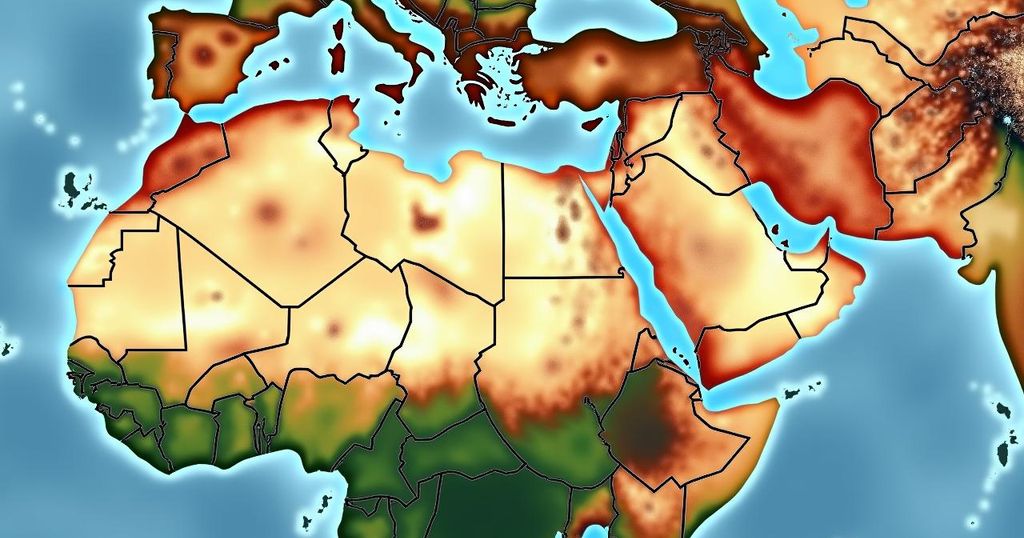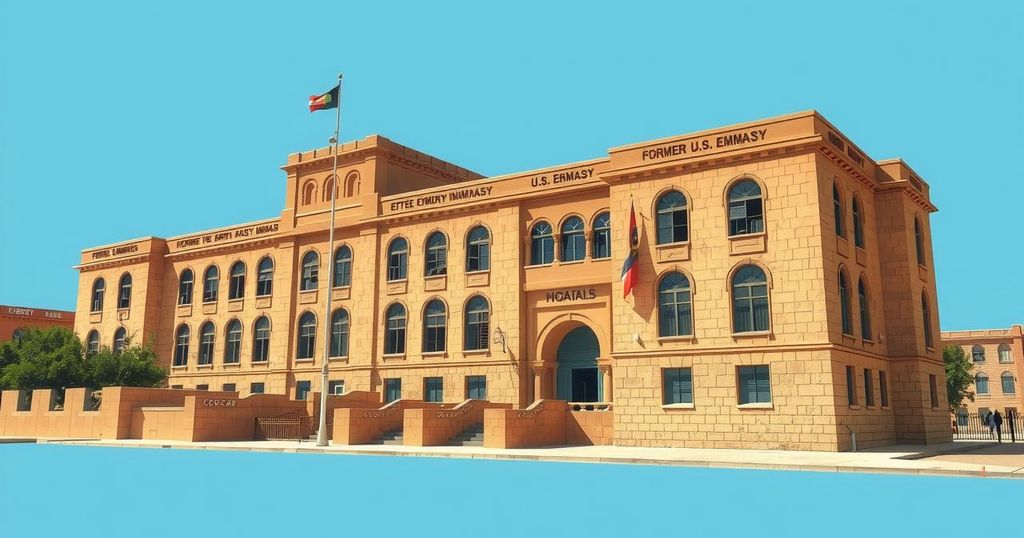Egypt Bolsters Regional Influence Through Alliances in the Horn of Africa
Egypt enhances its influence in the Horn of Africa through a newfound alliance with Somalia and Eritrea, motivated by regional tensions with Ethiopia. A recent summit in Asmara highlighted military and diplomatic priorities amidst accusations of Egypt’s involvement in the Sudanese conflict, reflecting Cairo’s strategy to secure its interests in a changing geopolitical landscape.
Egypt is intensifying its influence in the Horn of Africa through an alliance with Somalia and Eritrea. President Abdel Fattah Al-Sisi recently attended a tripartite summit in Asmara alongside Eritrean President Isaias Afwerki and Somali President Hassan Sheikh Mohamud. This alliance is reportedly aimed at countering Ethiopia’s regional dominance, framing the summit as a strategic move amidst escalating regional tensions. Significantly, this meeting occurred shortly after Sudan’s Rapid Support Forces (RSF) attributed aerial bombardments to Egyptian sources, indicating a direct military involvement by Cairo in the ongoing conflict in Sudan. This marks a notable shift from Egypt’s previous neutral position during the Sudanese civil war, now asserting its role as a key player in protecting its interests in the region. Furthermore, the summit’s discussions centered on improving bilateral relations while addressing crucial regional security issues. Egypt’s military collaboration with Somalia has been strengthened, particularly in light of Ethiopia’s recent agreements with Somaliland facilitating access to vital ports and naval bases in the Red Sea. Ethiopian Prime Minister Abiy Ahmed has voiced strong opposition to Egypt’s growing influence and military activities, asserting, “We will not allow them to harm us, we will humiliate anyone who dares to threaten us to deter them.” His remarks underscore Ethiopia’s determination to defend its sovereignty and national dignity against perceived external threats. Egypt’s involvement in regional conflicts, exemplified by its support for Sudan’s military leadership despite its role in diplomatic mediation, further demonstrates its ambition to sustain its presence as a dominant force in African affairs. While the Egyptian government maintains its commitment to Sudan’s stability, critics argue that its military actions pose significant implications for regional security.
The geopolitical landscape of the Horn of Africa has become increasingly complex, characterized by regional rivalries and military engagements. Egypt has sought to enhance its strategic partnerships with neighboring nations, particularly Somalia and Eritrea, amidst growing tensions with Ethiopia. Recent developments, including Ethiopia’s agreements to expand its military and naval capabilities via access to ports in the Horn, have prompted Cairo to solidify its alliances for maintaining security and influence in the region. Furthermore, Egypt’s involvement in the Sudanese conflict illustrates its willingness to engage militarily to protect its national interests, thereby positioning itself as a significant actor in African geopolitics.
In summary, Egypt’s recent summit with Eritrea and Somalia signifies a concerted effort to establish regional alliances countering Ethiopian influence while asserting its military presence in Sudan. This proactive approach is likely to escalate the strategic tensions within the Horn of Africa, as reflected in the responses from Ethiopian leadership. As Egypt continues to navigate complex regional dynamics, its actions will profoundly impact the stability and security of the broader Horn of Africa.
Original Source: www.atalayar.com








Post Comment